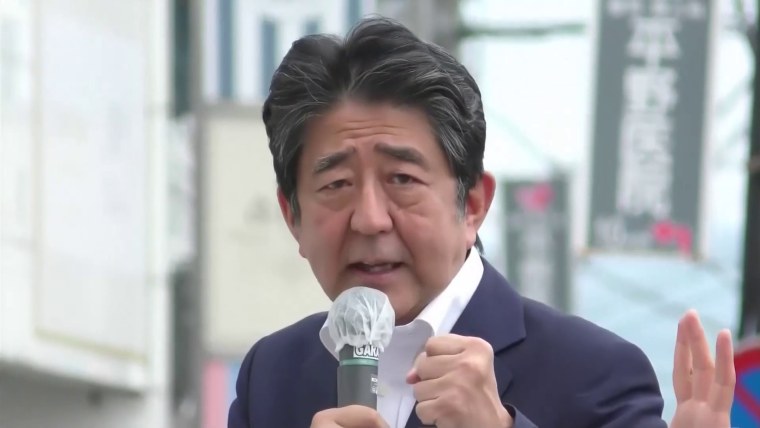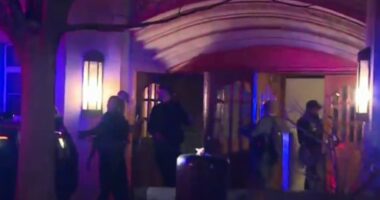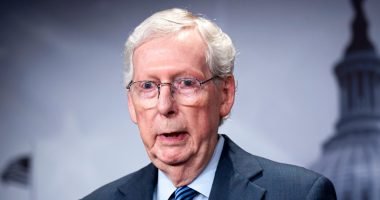TOKYO — Japan was left reeling Friday by the assassination of former Prime Minister Shinzo Abe, a stunning act of political violence in a country where gun laws are stringent and shootings are rare.
Abe was shot in the back while giving a speech at a campaign rally in the western city of Nara and was pronounced dead hours later, prompting a national outpouring of shock and grief.
It was the first assassination of a former or incumbent prime minister in Japan in 90 years.
“I believed we were in a country where assassinations would never happen. I feel so sorry for Mr. Abe. I am in shock,” Emiko Shiono, a 76-year-old Tokyo resident, told NBC News. “He was someone who contributed to the nation.”
The same sentiments were shared by those who did not necessarily agree with the conservative politician’s legacy.
“There are a lot of pros and cons [about Abe], but what happened should never have happened,” Tomoko Tanaka, 50, said Friday as she was walking with her grandchild in central Tokyo.
Video of Abe’s speech showed a puff of white smoke appear behind him along with two loud cannon-like blasts. Video and photos show what appears to be an improvised weapon lying on the ground in the aftermath.
Police said Friday that they believe the attack was carried out with a homemade gun and later found several other weapons that appeared to be homemade at the suspect’s residence. It is unclear whether the suspect has proper licenses for the weapons.
Japan’s gun laws are among the strictest in the world, helping to make it one of the world’s safest countries. Handguns are banned and people must undergo extensive tests, training and background checks to obtain and keep shotguns and air rifles.
Only nine people died by guns in the country in 2018, eight of which were considered suicides or accidents, according to the World Health Organization. In 2021 there were just 10 shooting incidents, according to police data that excludes suicides or accidents. It said one person was killed and four people wounded.
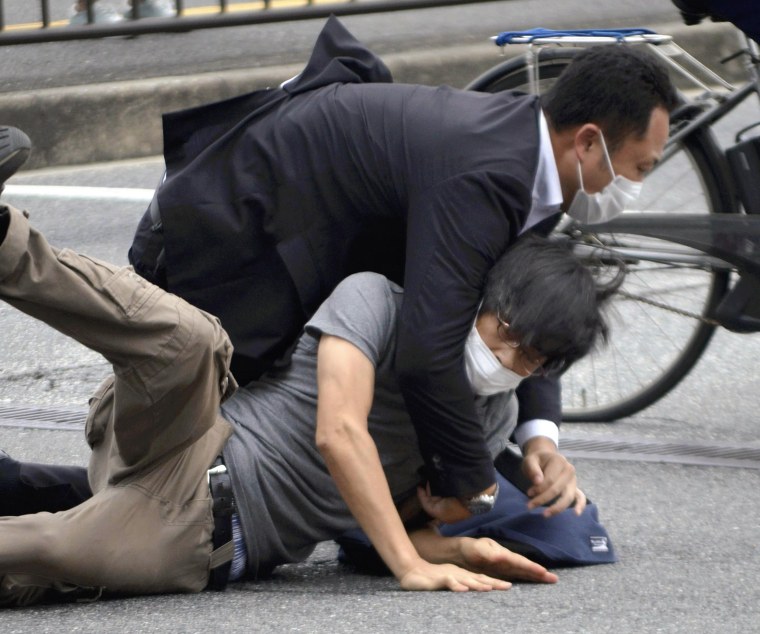
“This is an incredibly low number,” said Iain Overton, author of “Gun Baby Gun” and executive director of Action on Armed Violence, a U.K.-based advocacy group against gun violence.
“Japan has some of the strictest gun laws in the world and has a long history of such — it was the first country in the world to instigate a form of gun law via a reward scheme for information leading to the capturing of illicit guns in the 17th century,” said Overton.
The restrictions mean the kinds of shootings so common in the United States are vanishingly rare in a country like Japan, where the public assassination of a modern politician was inconceivable before Friday.
“Whether you liked what he was doing or not, the notion that a former leader could be gunned down in cold blood, I think, is just unimaginable to most Japanese,” said Jeff Kingston, director of Asian studies at Temple University Japan in Tokyo.
“This is something that happens in other countries — not here.”
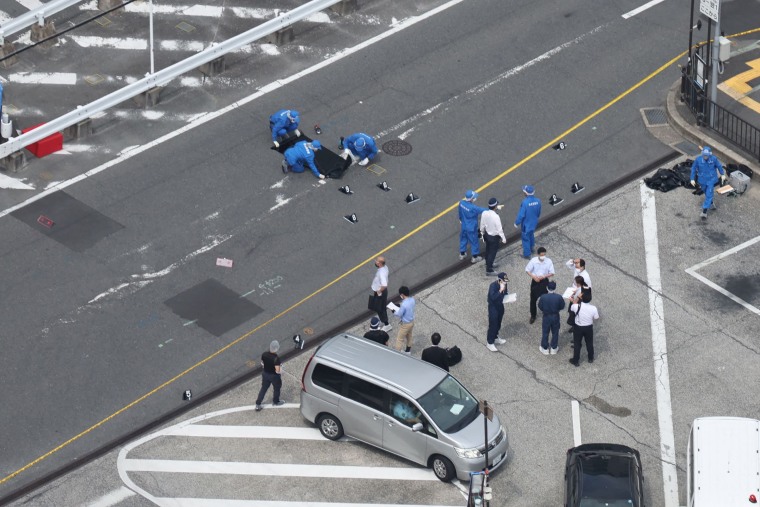
Occasional shooting do occur involving “yakuza” gangsters and Japan has had mass killings, but those usually have not involved guns.
In 2016, 19 residents of a facility for mentally disabled people were killed in their beds by a knife-wielding assailant, while in 2019 36 people died in an arson attack on an animation studio.
Politically motivated violence is also rare in the country.
In 1932 Prime Minister Inukai Tsuyoshi was killed by a group of soldiers at his residence during Japan’s pre-war militaristic buildup, one of a series of similar assassinations. And in 1960, Socialist Party leader Inejiro Asanuma was assassinated by a teenager with a dagger during a political rally.
The rarity of such attacks has seen Japan develop a culture of relative closeness between public and politician.
Abe, who remained an influential figure in the governing Liberal Democratic Party, was speaking at a campaign rally near a train station in the city of Nara in support of a candidate for the upper house of Parliament in elections scheduled for Sunday.
There tends to be little distance between voters and candidates at campaign events, said Tobias Harris, author of “The Iconoclast: Shinzo Abe and the New Japan,” calling it “one of the great things about Japanese politics.”
“Campaigns are not on TV — they really are in person, out every day interacting with voters at train stations,” he said. “Abe was doing the thing that Japanese politicians do.”
Olivier Fabre reported from Tokyo, and Rhoda Kwan reported from Taipei, Taiwan.
Jennifer Jett and Reuters contributed.
Source: | This article originally belongs to Nbcnews.com



